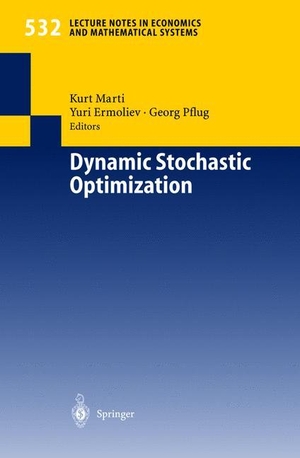Für statistische Zwecke und um bestmögliche Funktionalität zu bieten, speichert diese Website Cookies auf Ihrem Gerät. Das Speichern von Cookies kann in den Browser-Einstellungen deaktiviert werden. Wenn Sie die Website weiter nutzen, stimmen Sie der Verwendung von Cookies zu.
Cookie akzeptieren
Dynamic Stochastic Optimization
- Springer Berlin Heidelberg
- 2003
- Taschenbuch
- 348 Seiten
- ISBN 9783540405061
Uncertainties and changes are pervasive characteristics of modern systems involving interactions between humans, economics, nature and technology. These systems are often too complex to allow for precise evaluations and, as a result, the lack of proper management (control) may create significant risks. In order to develop robust strategies we need approaches which explic itly deal with uncertainties, risks and changing conditions. One rather general approach is to characterize (explicitly or implicitly) uncertainties by objec tive or subjective probabilities (measures of confidence or belief). This leads us to stochastic optimization problems which can rarely be solved by using the standard deterministic optimization and optimal control methods. In
Mehr
Weniger
zzgl. Versand
in Kürze